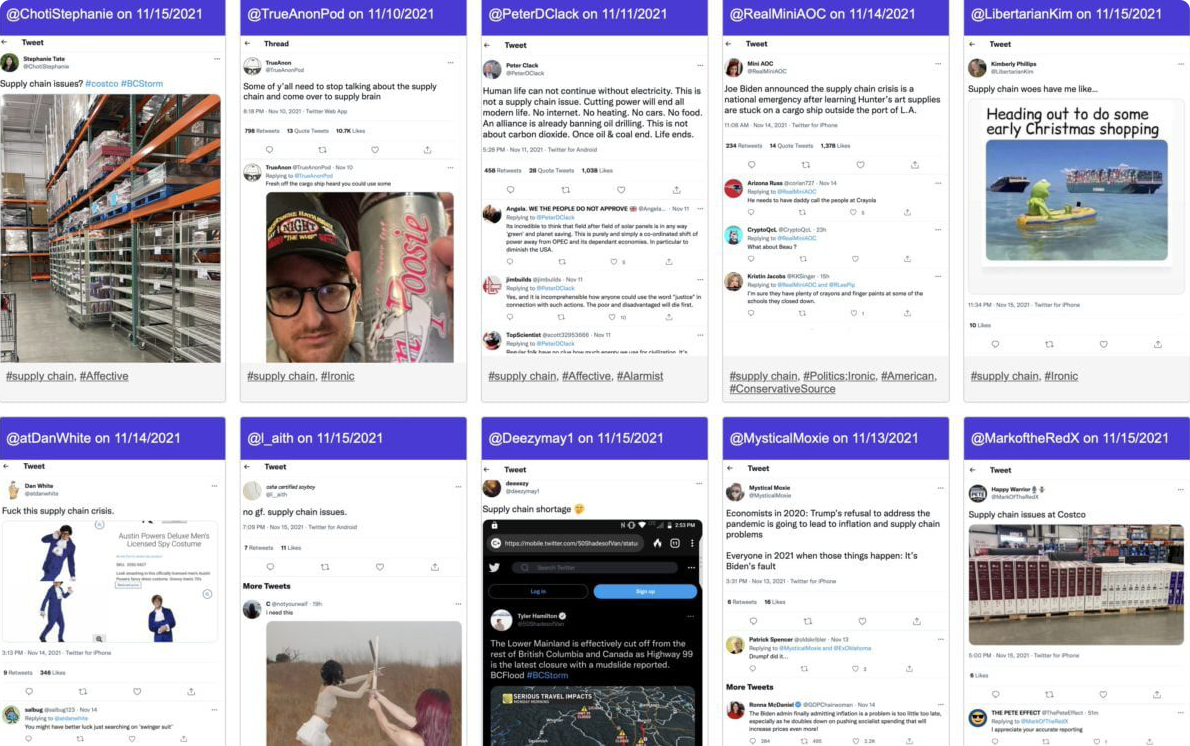
As part of a larger research project my research assistant Kayla Wentzel and I put together an interactive sample of tweets that show some of the social media discourse.
Some initial thoughts:
- People are scared. Not an overwhelming fear, but a clear affective inclination in that direction. It is most often expressed through discursive behaviors like sarcasm, joking, complaining… But the core of those behaviors is genuine discomfort and concern.
- These feelings were heavily tied to consumption goals for Christmas, birthdays, and so on—along with basic familial procurement and social obligation. While other economic conditions have long been threats to these goals, the assumption was still of a stable base of consumables.
- This discourse is deeply political. Who is at fault and why are usually given by a poster’s preexisting political beliefs.
- Empty store shelves are signs of Trump’s America for Biden supporters, the reverse for Trump’s; an inevitable failure of capitalism, or of meddling with capitalism. More specific causes-covid, climate, labor-are present, but mainly as empty political signifiers.
- There isn’t much interaction with expert opinion. My previous thread on the crisis was full of comments pulling in all sorts of links, but really the majority of discussions are isolated exchanges, with few (if any) external references.
- The discourse runs on decontextualized information. When “evidence” is included, it tends to be anecdotal, or stripped from any clear evidentiary context.
- For example, someone might say that they couldn’t order something, or that their store was out of a certain product. But their shared images (like empty store shelves) could be from anywhere, anytime. The purpose is affective-to affirm or reject with feelings the image evokes.
At the end of this all the solution preferred by most is simply a return to the status quo. They want the supply chain to function as they perceive it did before covid, before Trump, Biden, etc. Their assumption (a faulty one) is that the supply chain was “working” up until this point.


